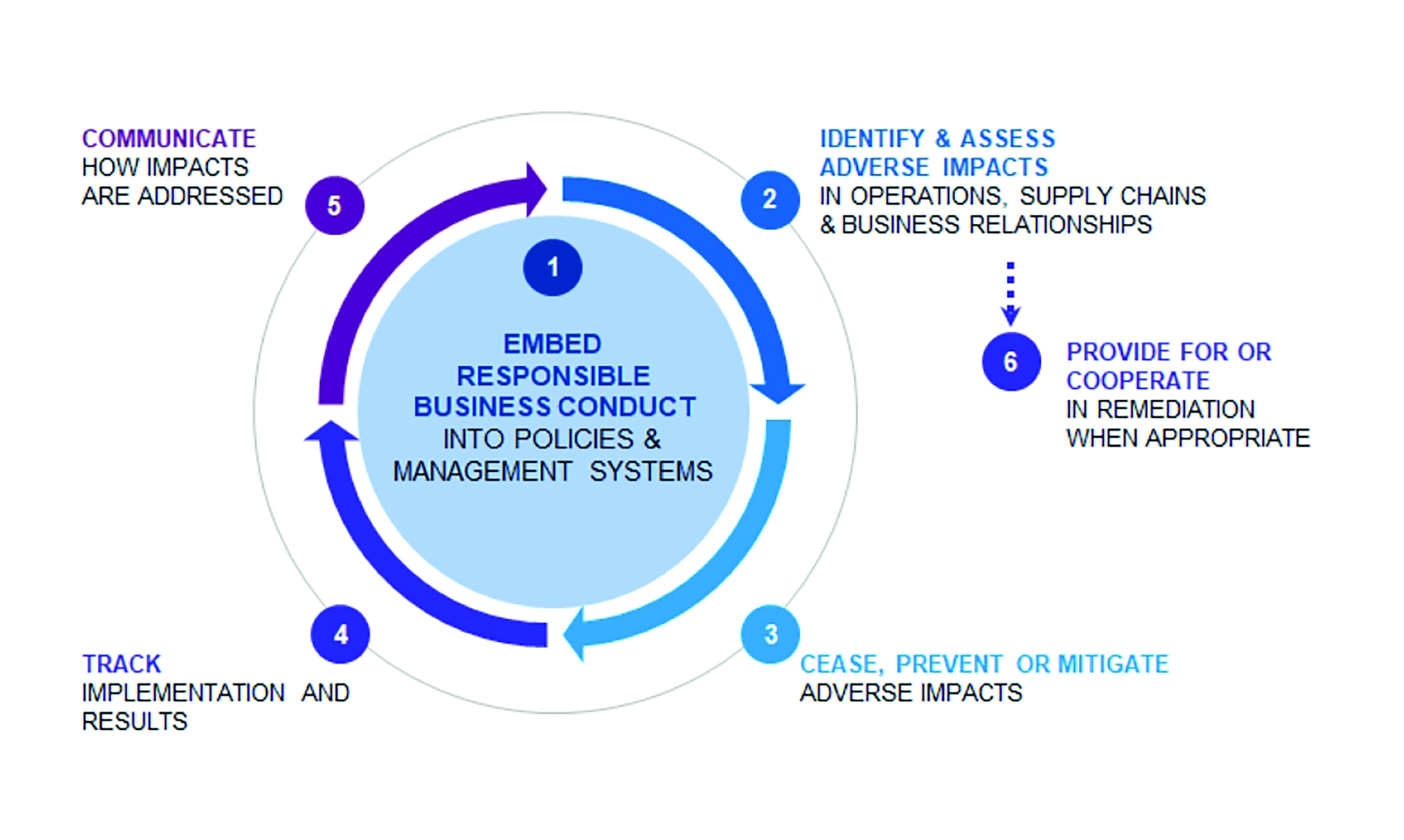Rise of Mandatory Human Rights Due Diligence

Opinion column by Martijn Scheltema
Currently the European Union as well as several member states have adopted or are considering mandatory human rights due diligence. Therefore, this topic is and increasingly becomes a (legal) compliance issue enterprises can no longer neglect. This contribution explains what human rights have to do with corporate behaviour, what human rights due diligence entails and whether mandatory human rights due diligence will be effective in addressing human rights issues on the ground such as child labour, human trafficking, forced labour and land right issues.
"
Business human rights
It may not be obvious enterprises have a role in safeguarding human rights as it is often seen as an obligation of States to protect these rights. However, business operations can cause, contribute or be linked to human rights abuse. For example, a supplier of a retailer may use child labour or forced labour in its production facility or a mining company may run a quarry in countries where forced resettlement has taken place or no Free Prior Informed Consent (FPIC) has been acquired from indigenous people for the use of their land in which they do not often have a legal title. It is quite common governments are not able or willing to protect human rights and to address such abuses to the extend required by international frameworks. Governments may even be involved in the human rights abuse such as forced resettlement. Therefore, business is expected to respect human rights even if governments do not fulfill their responsibilities. This is sometimes referred to a ‘privatisation of human rights’.
The expectation business should respect human rights has been implemented in several international frameworks of which the United Nations Guiding Principles on Business Human Rights (UNGPs) and OECD Guidelines for Multinational Enterprises are the most important and broad ones. The UNGPs include three pillars: a State duty to protect human rights, the corporate responsibility to respect them and the obligation for both to provide access to remedy in case of abuse. An important aspect of respecting these rights is the corporate obligation to undertake human rights due diligence. Unlike traditional due diligence which is focusing on risk to a company when it for example merges with or acquires another company or for banks when extending loans, human rights due diligence is focusing on risks to third parties who are affected by the company’s operations. For the purposes of the UNGPs these operations are defined in a rather broad way and include all the operations which are relevant for a company’s products or services including those of subsidiaries, in supply chains and upstream value chains. Furthermore, the concept of human rights is rather broad. It does not only include the traditional human rights such as the right to life, prevention of inhumane treatment, freedom of speech and freedom of association but also includes the core ILO-conventions (e.g. on child and forced labour) as well as indigenous rights.
Human rights due diligence includes six steps which are shown by the following scheme:

When companies have implemented human rights due diligence, steps 1, 2 and 5 are often better embedded in corporate activity than steps 3, 4 and 6. Step 6 remains especially poor. This is due to a patchwork of local and global mechanisms with little coordination and accessibility, trust issues for rightsholders, ineffective mechanisms and enforcement issues, and because mechanisms are usually considered and assessed in isolation. That said, enterprises are increasingly confronted with litigation regarding human rights issues.
Mandatory human rights due diligence
Several European member states as well as the European Union have announced or have implemented mandatory human rights due diligence. Such obligations have (at least in part) been implemented in the EU Conflict Minerals Regulation (regarding specific minerals from conflict prone areas) and in French and German laws. The European Commission has also announced a mandatory human rights due diligence directive which will cover all sectors, larger companies and smaller companies in risk sectors. Beyond this, The European parliament has adopted a resolution which includes a regulatory proposal for broad mandatory human rights due diligence. Thus, it is expected human rights due diligence is or will become a legal obligation soon and enterprises have to prepare for this. Legislation is also expected to generate a level playing field for business.
That said, introducing mandatory human rights due diligence does not necessarily imply business conduct in the human rights arena will change in a material way. For example, human rights due diligence legislation may lead to ‘tick the box’ exercises and administrative burdens for business without much material change for those affected by business operations. Thus, it is important public supervision will incentivize material changes in business behaviour, incentivize a race to the top instead of focusing on sanctions as well as acknowledge that a ‘one size fits all’ approach does not work because human rights issues vary among sectors, countries and human rights challenges at hand such as child labour or land rights. For this reason, it has been proposed to ground public supervision on corporate best practices as this stimulates the development of such best practices, either by individual companies or by multi-stakeholder initiatives, and acknowledges the different approaches that may be needed among sectors, countries or human rights challenges.
Role of sustainability department and corporate counsel
From the foregoing it is clear sustainability departments and corporate counsel should prepare for the existing and upcoming legislation regarding human rights due diligence. That said, what should they exactly do? The lenght of this contribution prevent a detailed answer, but I have three observations.
First of all, it should be analysed whether the legislative requirements are embedded in corporate practices, such as contracts in supply chains. For example, many enterprises have embedded contractual obligations on human rights but these often are rather ineffective, especially in combination with other contractual provisions and procurement practices which aim to shift risk to suppliers. Therefore, improved contractual model clauses are proposed in the US and are currently being developed for Europe. It may be public supervisors, or the judiciary will require implementation of such more effective contractual approaches.
Beyond this, access to remedy remains poor and improvement is needed here too as access to remedy is part of human rights due diligence. It is important to implement an approach which does not only focus on the effectiveness of individual mechanisms but also on ‘remedy eco systems’ which may consist of multiple mechanisms that are aligned and provide different types of dispute resolution starting with dialogue based mechanisms and investigations and providing escalation to binding mechanisms if necessary.
Finally, corporations as well as financial institutions and investors should get better grip on the human rights situation in their operations, amongst which their supply or value chains. Currently corporate activities to prevent and address human rights abuse are monitored as well as media attention for corporate abuse. However, human rights due diligence is about human rights risk to third parties. Thus, it is important to learn from their perspectives and measuring human rights impact requires (enhanced) inclusion of these perspectives. This implies current measurement methods need to be adapted.
"

Martijn Scheltema
is partner at Pels Rijcken (a The Hague, the Netherlands, based law firm) and chair of the business human rights practice group of his firm. He is professor at Erasmus University Rotterdam on this topic and chair of the dispute resolution mechanisms of the Dutch International Responsible Business Conduct agreements in the textile and natural stone sectors.
To be read also in the dossier "Human Rights: A Call for Businesses to be More Vigilant"



